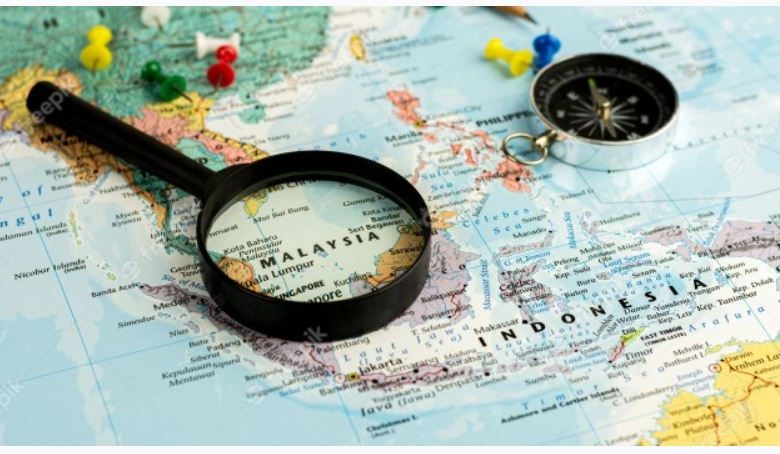

By Joachim Ng
Next time you drive past Ipoh Railway Station and Tun Razak Library, look at the road name: Jalan Panglima Bukit Gantang Wahab. As Perak’s first Menteri Besar in the 1950s, Wahab had a clear vision. He saw the necessity for all political parties to be non-communal if Malaysia were to enjoy sustainable progress well into the future. But he died at the young age of 54, and no politician inherited his vision.
Five years ago, a rather vocal man-in-the-street, Ipohite Thomas Kok wondered aloud if the nation might be better off without political parties at all as they had devolved into racial and religious factions. Perhaps Thomas was aware that “political parties” as a term is not mentioned in the Federal Constitution, which means that we don’t need them to sustain political life in the way that we need oxygen to sustain physical life.
Malaysians generally are not aware that the United States Constitution also leaves out political parties, as the Founding Fathers of America thought they were harmful. In A.C. Kapur’s words: “The makers of the constitution shared the common opinion that political parties were highly detrimental to national solidarity as they encouraged strife, division, chicanery, and personal manipulation.” (Principles of Political Science)
Is it possible that the visionaries who drafted our Federal Constitution harboured the same fear about politicking in Malaysia? Over six decades, our politicking style has been even more race-based than America’s. “What’s to come is to be centred on identity politics,” as UMNO’s Khairy Jamaluddin, now the Health Minister, noted frankly in August 2019 during a newspaper interview.
Two months later, Ipoh-based Association for Community and Dialogue issued a press statement calling for a re-examination to see whether the country had embraced the pluralistic spirit of the founding fathers. “Let’s embrace this spirit in nation-building and reject ethno-religious exclusivity,” said the association.
PKR’s Anwar Ibrahim has also frankly acknowledged that politicians are to blame for racial and religious tensions. “We need to admit the truth that political leaders are the source of rising temperatures over these issues,” he said in the Dewan Rakyat two years ago. More than a year before his speech, a leader of another party had gone so far as to warn supporters against voting for candidates who were not of their religion.
Political scientist Geoffrey Evans is credited with having said, “Identity politics does not have give and take.” The Economist published articles in October and November 2020 that lamented: “Politics is supposed to resolve society’s conflicts, but democracy is generating them instead.” Tensions, said the newsweekly, are fuelled by identity politics which “seeks to drive a wedge between us and them” with no compromise.
Every party, in taking a “segment-of-society” rather than a “whole-of-society” approach, contributes towards separating the rakyat into deepcut “us versus them” combat zones. Whenever a general election approaches, all political parties start using battlefield terminology beginning with a “war mode” announcement followed with “beat the war drums” and “fire the starting gun” to destroy “the enemies” who are their poll rivals.
Do you remember a particular sitting of the Dewan Rakyat (13 March 2019) when one MP after another thrilled to the sound of battle in this so-called hall of the people? A cynical “declaration of war” remark was quickly followed by the retorts: “We can have a war” and “Whoever wants a war, we welcome a war.”
Across the democratic world, “enemy” is no longer some foreign invader. In a cartoon scene depicting mythical Viking warrior Hagar the Horrible, a camp guard shouts, “Halt! Who goes there, friend or foe?” Hagar replies: “I don’t know. Who did you vote for?”
War is bloody, so why are politicians so keen on it? In another cartoon scene, Hagar advises his son: “I don’t want you to grow up thinking that Vikings are the only ones who loot and plunder… politicians do a pretty good job, too!” Hagar reflects a deep suspicion in the democratic world that politicians are there for the money. This sentiment holds true in Malaysia too — and for a long time already.
Going back 15 years to 2006, the Business Ethics Institute of Malaysia conducted a survey on the level of trust that people have in 15 occupations. The survey found that the rakyat placed the least amount of trust in politicians. A high 62% of respondents felt that our politicians do not tell the truth. Only 11% felt that politicians tell the truth, and the remaining 27% said they didn’t know.
Being there for the money isn’t morally wrong, though. Most employees, whether in the public or private sector, are there for the money and not to serve you. “The customer always comes first” is just a PR line. Your boss always comes first. Every politician’s boss is the party that selects him to contest a seat, funds his campaign, and pushes him into a ministerial position whenever a new Prime Minister forms his Cabinet.
In return, the party benefits when its MPs get executive jobs. The party gets more political donations, enabling it to reward party loyalists and build up its “war chest” — yet another military term used by all parties. But to win extra seats or secure bigger margins of victory, successful parties must have a winning card or two. You guess right. The winning cards are race and religion.
With our political parties irreversibly organised by race, Malaysia is locked into a very narrow and toxic path of governance. For six decades, our politicians have played these twin cards. Identity politics has come to define the character of Malaysia — it is now in our DNA. Is there a better way to govern? Yes there is, and Perak can show the way. We shall discuss a remake of politics in another article.
Disclaimer: The views and opinions expressed in this article are those of the author and do not reflect the official policy or position of Ipoh Echo.


